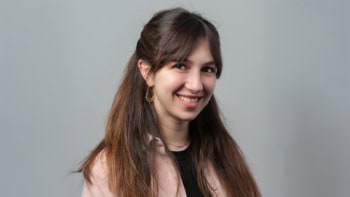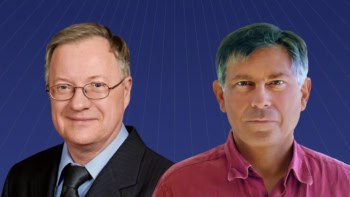Giulia Grancini is a professor of chemistry and an expert in next-generation materials for photovoltaic cells at the University of Pavia. She originally studied for a Master’s degree in engineering and then completed a PhD in physics at the Polytechnic University of Milan. In 2015 she moved to École Polytechnique Fédérale de Lausanne (EPFL), Switzerland, where she set up her own research group on new materials for solar cells. At this point, her work crossed into the field of chemistry. She moved back to Italy in 2019, where she is continuing this research.

What skills do you use every day in your job?
The number one skill that I have developed in my career and that I use today is the scientific method – doing rigorous tests and analysis, checking again, duplicating the experiments. This is very important, so I try to teach my students that the scientific method is key. Serendipity is also an important factor when you use a rigorous method, so it’s essential to be curious about anything you come across and work hard to understand it.
Another important skill is to have an open mind and try to always learn, not only from your own area but also from different fields. If you want to explain something in your research, or discover something, you should not just look out for what you expect, but be open to seeing something that you were not expecting. This requires a kind-of multidisciplinary approach, and that’s what I have learned in my career. At the beginning, I did my Master’s in engineering, then a PhD in physics. When I moved to EPFL I moved into chemistry, and then went back to Italy as a professor of chemistry.
What do you like best and least about your job?
I think I’m very lucky as a scientist, because my job is also my passion, and I think most scientists would answer the same way. This makes a difference, not only for yourself, but also for your team, who can see that passion. Mentoring is another aspect I like a lot, and so is making new discoveries that can make a difference to the world, even if it’s a small one.
On the other hand, a research career is challenging, and for younger scientists it might be difficult to find a clear path towards their own independent work. I think there needs to be more attention and more action to guide younger researchers to develop their own independent thinking, rather than just doing whatever their supervisor is asking them to do. I’ve been very lucky because I met mentors, especially female mentors, who helped me navigate that. So finding a good mentor is very important.
What do you know today that you wish you knew when you were starting out in your career?
I think that it’s very important to go beyond your comfort zone and try to test yourself and your ability in an unexplored area. So for instance, my experiences abroad were extremely interesting for me and useful to develop my independent thinking. But maybe I could have looked for these experiences earlier.

Green jobs for physics graduates: decarbonizing energy sources
Taking more opportunities to go and see different research approaches and labs, and to go to conferences, is really beneficial. Now with COVID, we are all in hybrid meetings, so it is very difficult for young researchers to engage with other scientists. I’m very lucky that I had those opportunities to travel and meet people, so I do not regret any of my steps.



